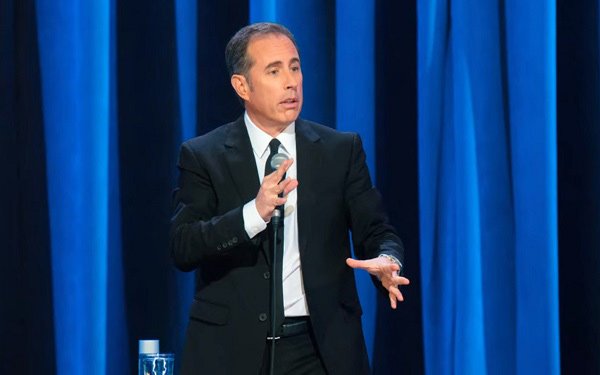
TV news organizations -- real ones, the
ones that report on the news and then issue corrections or even regrets -- always need to have accountability.
Should commentators who hold strong opinions do the same? Maybe even
comedians?
And digging deeper, should comedy material on TV and elsewhere issue corrections -- by the artist, or the venue involved?
How do you define the word "corrections" in this
context?
Perhaps media platforms need to handle this: A TV network, radio station, streaming platform, radio station, or TV network. Even then, there are many freedom-of-speech issues to
consider as well.
Recently, Fox News Channel host Brian Kilmeade said homeless people should be euthanized after the murder of a woman on a train in North Carolina. He then expressed regret
and took back those remarks, saying his remark was “extremely callous.”
advertisement
advertisement
Was he or the show he was on -- “Fox & Friends” -- cancelled or suspended? No. And what was
the TV viewers' response?
Yes, we are in a different kind of country -- even for standup comedians in front of live audiences. In 2015, Jerry Seinfeld said he didn’t want to perform in
college campuses anymore due to the intense focus on political correctness, particularly on the "extreme left."
More recently, on the “Breaking Bread with Tom Papa” podcast in
April 2024, he changed his view: “Does culture change? And are there things that I used to say that I can’t say because people are always moving [the gate]? Yes, but that’s the
biggest, easiest target,” he added.
“You can’t say certain words, whatever they are, about groups. So what? The accuracy [emphasis added] of your observation has to be 100
times finer than that, to just be a comedian.”
He said the "extreme left" didn’t do anything to hurt comedy. “I’m taking that back now, officially. They have
not.”
Perhaps the key words here from Seinfeld aren't “extreme left” or “groups," but rather accuracy -- at least as it pertains to comedy and/or opinion. Now, is this
the kind of accuracy that straight-ahead news journalists need to adhere to? We are in a fuzzy area.
Straight-ahead real-time news stories can be in flux -- always moving and changing -- even
the most depressing and tragic news stories.
And comedy? Typically, it needs to work at a given moment -- especially “live” comedy. It doesn’t get a “second
take.” Monday-morning quarterbacking can have comedians issuing regret -- or something else.
And what if a comedian makes an opinionated reference during his comedic monologue about a
right-wing group in the context of talking about a murder that has occurred -- at a point when not many facts are confirmed? While not perfect should that person be fired, or his show
cancelled?
CNBC host Jim Cramer asked Brendan Carr, chairman of the Federal Communications Commission, on Thursday, "should the government have someone who reviews the writers before the
host says something?” Carr said “no.”
Cramer then asked: “How would you be sure that the host is saying something that you would think is OK?”
Carr:
“That's not my -- it's not up to me. The way this works is that the local broadcast station is supposed to be responsible for the content.”
That’s because a TV audience is
listening -- maybe laughing, maybe crying, and always coming to their own conclusions.